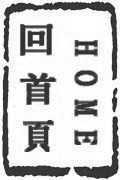
Époché
/
n/a
CHEARS: False
EARS: True
CMT: False
EARS2 Encyclopedia: False
CHEARS:
EARS:
In Schaefferian theory époché represents a deconditioning of habitual listening patterns, to return to the "original experience" of perception, enabling us to grasp the sound object at its own level which takes it as the vehicle of a meaning to be understood or a cause to be identified. This term, borrowed from Husserl, is directly linked to the notion of Reduced Listening. (Paraphrase of Michel Chion (1983). Guide des Objets Sonores. Eds. Buchet/Chastel, Paris. 1995 translation by John Dack/Christine North.)
EARS 2:
参看其它/See Also
术语翻译/Terms Translator
术语校对/Terms Proofreader
术语顾问/Consultant to terminology
参考文献/Bibliography
讲座/Lecture
评论/Comments
发表评论(预先注册)/Add comment on this term(members ONLY)